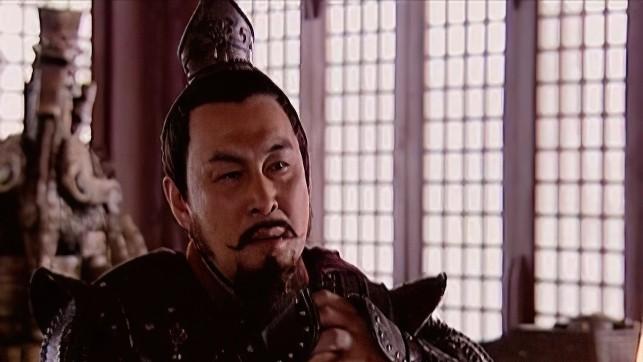In 166 BC, when Li Guang accompanied Emperor Wen of Han on a hunting expedition, he rushed to the front and personally killed the beast, showing great bravery. Emperor Wen of Han praised in a slightly regretful tone, "It's a pity that you didn't meet a good opportunity!" If you were in the han gaozu period, what would it be to seal a ten thousand households! However, Li Guang's life was particularly tragic, and after the periods of Emperor Wen of Han, Emperor Jing of Han, and Emperor Wu of Han, he was ultimately unable to be crowned marquis.
In fact, Li Guang was also very puzzled about this question, and he found the astrologer Wang Shuo and asked him: "Since the Han Dynasty attacked the Xiongnu, Guangdong was not among them, and the lieutenants below the ranks of the various departments were inferior to the MiddleMen, but there were dozens of people who won the title by striking Hu Jungong, and Guangdong was not a descendant, but those who did not have the merit of size to obtain the title, why not?" Am I not supposed to be evil? And fixed life also? Wang Shuo asked, "If the general thinks for himself, is there anything particularly regrettable in his life?" ”

After thinking for a moment, Li Guang said, "I used to serve as the Taishou of Longxi, and during the Qiang rebellion, I abducted more than 800 people and then killed them all. Wang Shuo said, "Killing is the biggest disaster, and that's why the general hasn't been able to be made a marquis." Facts have proved that Wang Shuo's words are pure nonsense, because there have been many generals who have killed and surrendered throughout the ages, which is not at all the reason why "Li Guang is difficult to seal". So what exactly is the reason?
First, Li Guang's political IQ is too low. In fact, as early as the time of Emperor Jingdi of Han, Li Guang could already be made a marquis, but he did a wrong thing and completely offended Emperor Jingdi of Han. The thing is, in 154 BC, the Western Han Dynasty broke out in the Rebellion of the Seven Kingdoms of Wu and Chu. Emperor Jing of Han ordered his lieutenant Zhou Yafu to lead a large army, and Li Guang also participated in the military operation. Under the city of Changyi, Li Guang rushed into the enemy position and captured the rebel flag in one fell swoop, and has since become famous.
It is reasonable to say that capturing the flag was a great achievement, but after the suppression of the rebellion, the Han Jing Emperor did not have any rewards. It turned out that when he was in the front-line army, Li Guang accepted the general Seal silk granted by Liu Wu the Prince of Liang, which caused dissatisfaction among emperor Jing of Han. Although Liu Wu, the King of Liang, was the younger brother of Emperor Jing of Han and also made great contributions in counterinsurgency, the relationship between the brothers was very delicate. Once, during a banquet, Emperor Jingdi of Han, in front of his mother Empress Dou, said to Liu Wu, "I intend to pass the throne to you after I have lived a thousand autumns." ”
Although Liu Wu resigned on the surface, he still longed for it in his heart, and Empress Dou also hoped that Emperor Jing of Han would make Liu Wu his heir. In fact, Emperor Jing of Han did not want so much, because he had more than a dozen sons and there was no shortage of heirs at all. Liu Wu, the King of Liang, either out of admiration for Li Guang or for the sake of co-optation, granted Li Guang the seal of the general. However, Li Guang was unaware of the complex political factors behind this, and the moment he accepted the seal of the Liang general, he was doomed to lose the opportunity to be crowned marquis during the Han Jing Emperor.
Second, there is a problem with Li Guang's way of running the army. When Li Guang led his troops on the expedition, he would not plan the troops at all, and when he found a good place with water and grass, he camped, and during the period when the army was stationed, everyone took matters into their own hands, "without fighting with swords and fighting for self-defense, Mofu Province was about to write and write about things, but he was also far away from Hou Hou, and he did not try to be killed." That is to say, Li Guang would not use strict military discipline when commanding the army, so his army appeared to be free and scattered, and when it suddenly encountered the enemy army, it would fall into a passive encirclement situation.
Later facts proved that Li Guang led his troops out of the blockade many times because of this way of managing the army. In this regard, later generations commented, "As for those who do this with the ability of Guang, they do not need discipline to govern the army, so they are not with the honor and the reward, and then they die", "Li Guang is not a great general, he has no troops, everyone is at his own convenience, this can be taken advantage of by profit, and when he encounters a great enemy, he will be overthrown." However, it is precisely because Li Guang treated the soldiers well, so after his death, "the world knows and does not know, all mourn."
References: 1. "Records of History"; 2. "Book of Han"; 3. "Zizhi Tongjian"